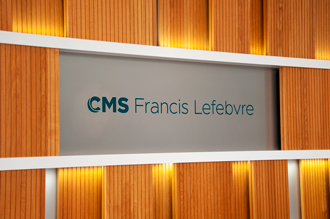
As of today, there have been nearly 90,000 confirmed cases and 3,000 deaths attributed to the new coronavirus (Covid-19), originating from the city of Wuhan, in the Chinese region of Hubei.
These figures speak for the scale of the epidemic, now raging through China and spreading worldwide. 5 continents and more than sixty countries have been affected.
This human tragedy, classified by the World Health Organization (WHO) as a "public health emergency of international concern" on January 30th 2020, triggers significant economic and logistics issues.
To stop the spread of the epidemic, the Chinese authorities have implemented radical measures ordering the shutting down of most public and economic activities in the country and creating major difficulties for travel within China and beyond its borders.
In this context, numerous French and international companies with production sites or subcontractors in China have announced the closure of their factories and outlets. All sectors of industry are affected by the crisis.
It is therefore clear that many economic operators will be tempted to invoke force majeure to justify the non-performance of their contractual obligations and thereby seek to be discharged from any liability in this regard.
The question that then arises is whether this strategy will be successful or doomed to fail for contracts subject to French law.
Force majeure in French law
Force majeure is defined, in French law, by Article 1218 of the Civil Code: "Force majeure exists in contractual matters where an event outside the control of the debtor, which could not reasonably have been foreseen at the time of conclusion of the contract and which effects cannot be avoided by ppropriate measures, prevents the debtor from performing its obligation."
Any event preventing a party to a contract from performing its obligations may therefore be classified as force majeure if it entails the following three characteristics:
- Such event shall be out of the control of the party who can no longer perform its obligations - it is independent from its will;
- Such event shall have been reasonably unforeseeable at the time of conclusion of the contract;
- Such event shall be irresistible at the time of contract performance. Such irresistibility shall render performance of the contract impossible, and not just more expensive or more complicated.
Regarding the international sale of goods, it should be noted that Article 79 of the UN Convention on the International Sale of Goods ("CISG") refers to a principle similar to that of force majeure, stating "A party is not liable for a failure to perform any of its obligations if it proves that the failure was due to an impediment beyond its control and that it could not reasonably be expected to have taken the impediment into account at the time of the conclusion of the contract or to have avoided or overcome it, or its consequences.1“
Pursuant to this article, a party may be discharged from liability in the presence of an impediment presenting three main characteristics close to those stated in the aforementioned Article 1218 of the Civil Code: an independency from the willingness of the parties, a reasonable unforeseeability at the time of conclusion of the contract and a reasonable impossibility of being prevented or surmounted.
Unfortunately, in all circumstances, the assessment of the force majeure nature of an event depends on the amenability of the judge who enjoys complete latitude in this regard.
As far as epidemics are concerned, analysis of French case-law shows a regular refusal to qualify such events as force majeure. For instance, French judges have refused to classify as force majeure the H1N1 flu virus of 20092, the plague bacillus3, the dengue virus4 and the Chikungunya virus5.
In each of the above cases, the judges' rulings were significantly influenced by the particular circumstances of the case. For example, the judges deemed that the H1N1 flu epidemic of 2009 could not constitute an event of force majeure as it had been widely announced and expected, even before public health regulations were implemented. Regarding the plague, it was ruled that the epidemic was not sufficiently certain or serious, that airlines and travel agencies had not been instructed to avoid the region (i.e. India) and that, in any event, protection against the risks of contagion could be ensured by taking preventive antibiotics.
Coronavirus (Covid-19)
The unprecedented scale of the coronavirus (Covid-19) epidemic, the strict and previously unforeseen measures implemented by the Chinese government (quarantine, transports suspension, etc.), international and French authorities (the French Minister of Europe and Foreign Affairs strongly advises against any travel to Wuhan or to any other province of the Hubei region, recommends that travel to China should only be undertaken for essential reasons, etc.) and declarations from the WHO could be cited as arguments to contend that the current epidemic constitutes an event of force majeure under French law.
Conversely, the repeated epidemics during the last century of which many originated from Asia (the Spanish flu of 1918, the Asian flu of 1956 to 1958 and SARS in 2002) are all precedents that undermine such qualification.
Accordingly, it may be less the coronavirus (Covid-19) epidemic as such than the measures taken by the Chinese and international authorities to prevent the spread of the virus that could lead to current events being classified as force majeure.
In the present case, it should be noted that, unlike the situation prevailing during the SARS epidemic in China in 2002, the coronavirus (Covid-19) epidemic has led to various changes in the position of the Chinese government regarding the preventive measures to be adopted and to the implementation of extremely severe and radical rules (total or quasi-total isolation of several cities, prohibition of meetings in public and private places, coercive measures interrupting logistics flows, etc.). Accordingly, numerous companies, notably those located in China, are encountering significant and relatively unforeseeable difficulties rendering the continuation of their economic activities impossible and the closure of their factories or offices necessary, far beyond the Chinese New Year celebrations.
However, classification as force majeure will always be subject to the free appraisal of French judges who will determine if the coronavirus (Covid-19) epidemic constitutes an event of force majeure depending on the facts of each case and on the possibility of implementing appropriate measures to avoid its damaging effects on contractual performance (use of alternative sources of supply, production on other sites, etc.).
If the classification as force majeure is upheld, such recognition will notably lead to the suspension of the contract performance in case of a temporary impediment (unless the delay resulting from said suspension justifies termination of the contract) or to the automatic termination of the contract, discharging the parties from their obligations, if the impediment is permanent.
What should you do today if your contract is governed by French law?
In practice, if any of your co-contractors or yourself is prevented from performing its contractual obligations due to the coronavirus (Covid-19) epidemic and to its consequences on the global economy, we advise you to:
- Check whether or not your contract contains a force majeure clause. The legality of such a clause is established in legal doctrine and French case-law. The parties to a contract may therefore validly modify the definition provided in Article 1218 of the Civil Code, either extending or limiting its definition, or even by listing (in an indicative or limitative manner) the events that constitute force majeure;
- Determine if "disease", "epidemics" or "government measures" are expressly stated as events of force majeure in your contract or if your contract embodies a clause drafted so that the coronavirus (Covid-19) epidemic could constitute an event of force majeure (e.g. simple indicative list of events constituting force majeure);
- Identify the conditions that trigger implementation of the force majeure clause. These most frequently take the form of an information obligation subject to specific timeframes and formalities, to be complied with by the party unable to meet its obligations;
- Anticipate the contractual consequences of an event of force majeure: suspension, automatic termination, etc.;
- Contact your co-contracting partner to, depending on your situation, inform him of the impossibility to perform your obligations (in compliance with contractual conditions) or ask him to adopt reasonable replacement solutions to to continue to perform the contract.
Performing such verifications seems to be a prerequisite to safeguard any legal position, as, as of today, the sole certainty that one may have is that disputes relating to the coronavirus (Covid-19) epidemic and the concept of force majeure will be unavoidable.
1It should be noted that this convention is intended to apply to all contracts covering the international sale of goods that are governed by French law and which have not specifically excluded the application of CISG.
2CA Besançon, 8 January 2014 - n°12/02291
3CA Paris, 25 September 1998
4CA Nancy, 22 November 2010 – n°09/00003
5CA Basse-Terre,17 December 2018– n° 17/00739
For more information on our law firm:
Our law firm is a leading international business law firm. Its deep roots, unique positioning and highly recognised expertise enables it to deliver innovative, high value-added solutions in all areas of the law.










